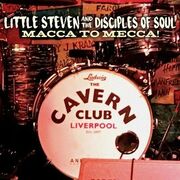LONDON, UK (Top40 Charts) The Ivors Academy of
Music Creators has published its written submission to the DCMS Select Committee inquiry into the economics of music streaming. MPs on the inquiry heard today, 8 December, from Ivor Novello Award-winning songwriter and artist Nile Rodgers; singer, songwriter and The Ivors Academy member Fiona Bevan; Jazz alto-saxophonist, rapper and The Ivors Academy member Soweto Kinch.
In a range of recommendations to the DCMS Select Committee inquiry, The Ivors Academy has recommended that the UK Government:
• Introduce regulation of the Major
Music Intermediaries - international corporate groups comprising both labels and publishing with revenues above 5% of world markets - with a code of conduct to create parity with how
Collective Management Organisations are regulated.
• Implement a package of copyright reform, based on the principles of liability of online platforms to provide greater transparency, improved contract terms and fairer pay for writers and performers.
• Set a timeframe to implement reform of
Collective Rights Management systems and the implementation of a Minimum Viable Data Standard for music recordings. The Academy has called for such a standard to require basic metadata relating to the underlying composition so that that fewer streams fall into the un-allocable 'Black Box'.
Graham Davies, CEO of The Ivors Academy said, "UK songwriters are the best in the world. To remain a world leader, to recover from Covid and power the future UK economy we need songwriters and their publishers to get a higher value from streaming. We are calling on Government, through the DCMS Select Committee inquiry, to create a level playing field for songwriters by regulating the Major
Music Intermediaries, modernising copyright and addressing the streaming 'Black Box'.
"Streaming has the potential to support the wonderful diversity of music that is being created in the UK. But currently the majority of the value is going to a concentrated number of players. The Ivors Academy has campaigned for a Government review of streaming with The Musicians' Union and we thank the MPs on the DCMS Select Committee for taking this important opportunity to explore how streaming affects all parties, and how it can play a role generating equitable value for creators and businesses."
Singer and songwriter Fiona Bevan said, "The reality of being a songwriter at the moment is extremely stark because we're not being paid fairly for our work. I recently had a song on a UK number one album, the fastest selling solo artist album of 2020, and it will surprise many people that, from what seems like an incredible success, I have only earned £100.
"Songwriters create the lyrics and melodies that people fall in love to, walk up the aisle to - the soundtracks of everybody's lives, but it's becoming increasingly difficult to make a living, largely due to the huge imbalance in how music streaming pay creators. Britain has produced some of the greatest songwriters on the world stage, but unless these problems with the economics of music streaming are solved, new up-and-coming talented songwriters will simply not be able to survive, and the outcome will be an obliteration of cultural and artistic diversity."
The Ivors Academy and Musicians' Union have been campaigning to Fix Streaming calling the royalties paid to music creators from streaming "woefully insufficient". A campaign petition calling for a Government review received over 17,000 signatures.
A recent poll of members of The Ivors Academy and Musicians' Union exposed the reality of streaming income for many writers, artists, musicians, songwriters and composers while the three major music groups - Sony, Universal
Music Group and Warner
Music Group - have reported combined streaming revenues of $4.4bn so far this year. Poll findings:
• 82% of respondents earned less than £200 from streaming, from all of their music across all platforms in 2019. This included members with thousands, hundreds of thousands, and millions of streams.
• 92% said less than 5% of their earnings came from streaming last year.
• 50% said their income from recorded music has declined over the past 10 years.
• 43% said that insufficient income from streaming caused them to get a job outside of music.
























